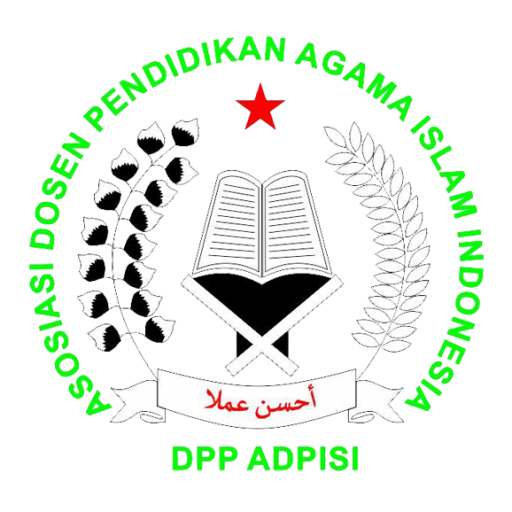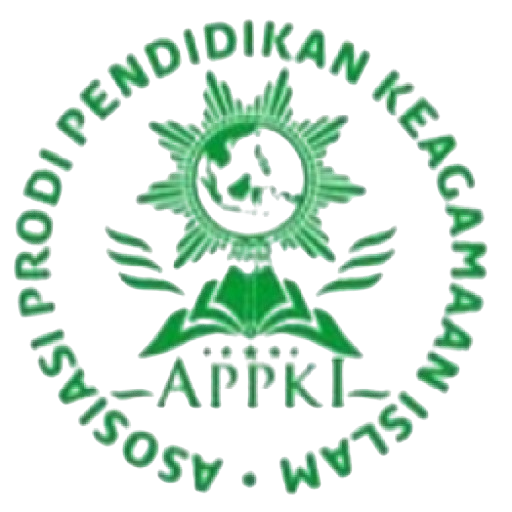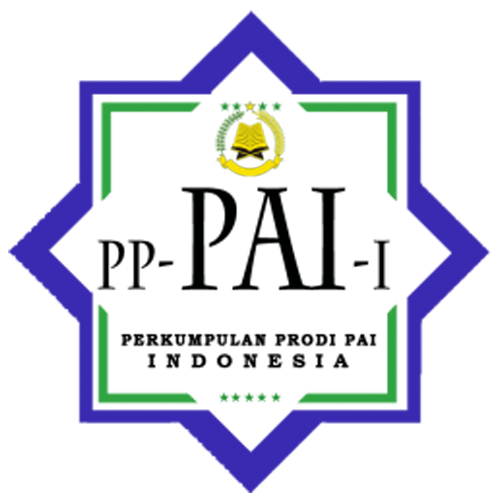- Focus and Scope
- Section Policies
- Peer Review Process
- Publication Frequency
- Open Access Policy
- Archiving
- Article Processing Charges (APC)
- Plagiarism Checker
- References Management
- Publication Ethics and Publication Malpractice Statement
Focus and Scope
Articles to be received and published in the Journal of TAKLIM are included in the scope of Islamic Education. The areas listed below are indicative only. The editorial board also welcomes innovative articles in the scope of Islamic Education.
- The concept of education in the Koran and Hadith
- Philosophy of Islamic Education
- Islamic Education Curriculum
- Implementation of Islamic Education in Schools and Universities
- Implementation of Islamic Education in Pesantren
- Implementation of Islamic Education in Non-Formal Education
- Implementation of Islamic Education in Informal Education
- Comparative study of Islamic education in various countries
- The roles of a teacher and parent in Islamic Education
- Study of Islamic Education Thought of Islamic scholars
- Research and Development in Islamic Education
- Study of Islamic Values
- Children's education in Islam
- Contemporary studies on Islamic education
- Learning the Koran
- Computers, Internet, Multimedia in Islamic Education
- Study on Learning Evaluation in Islamic Education
- Learning and Teaching Models in Islamic Education
- Globalisation in Islamic Education
- Best Practice of Islamic Education
Section Policies
Articles
Peer Review Process
Authors must submit manuscripts through the system for consideration for publication in TJPAI. TJPAI journal runs a peer review process and promotes blind review. Information
Details of the peer review process are HERE.
Before entering the review process, all manuscripts will be checked whether they are free from plagiarism practices using the "Turnitin" software. If there are indications of plagiarism, the manuscript will be immediately rejected. Authors whose papers are rejected will be notified of the reasons for their rejection.
Acceptance or rejection of manuscripts submitted by authors will be decided by the editorial board, which is based on the results of the review provided by the reviewer. There is no communication between the author and the reviewer during the review process. Also, there is no communication between the author and the editor regarding the rejection decision. Editors reserve the right to recommend that authors have manuscripts corrected and edited by professional proofreaders, and refuse publication of manuscripts whose authors do not comply with the editor's advice.
Publication Frequency
TAKLIM: Jurnal Pendidikan Agama Islam is published twice a year in March and September. Every issue consists at least 5 articles, and therefore every volume has at least 10 articles/reviews.
Open Access Policy
This journal provides immediate open access to its content on the principle that making research freely available to the public supports a greater global exchange of knowledge.
This work is licensed under a Creative Commons Attribution-ShareAlike 4.0 International License
Archiving
This journal utilizes the LOCKSS system to create a distributed archiving system among participating libraries and permits those libraries to create permanent archives of the journal for purposes of preservation and restoration. More...
Article Processing Charges (APC)
All articles published in Taklim: Jurnal Pendidikan Agama Islam (TJPAI) are open access and freely available online immediately upon publication. Authors are not required to pay for article submission. However, starting in 2025, if a paper is accepted for publication, the author will be required to pay an Article Publication Fee to cover publication costs.
The Article Processing/Publishing Charges (APC) are IDR 300,000 for standard processing and IDR 500,000 for Fast Track review.
Please follow the payment instructions provided in the acceptance letter.
Plagiarism Checker
Every submitted paper to TAKLIM: Jurnal Pendidikan Agama Islam will go through plagiarism checking by Turnitin in initial process of paper screening and before publishing it in an issue.
References Management
In writing Citation and References, editors of TAKLIM: Jurnal Pendidikan Agama Islam suggest authors to use the Mendeley Reference Management Software.
Publication Ethics and Publication Malpractice Statement
(Based on Committee on Publication Ethics (COPE) and the World Association of Medical Editors (WAME)'s Best Practice Guidelines for Journal Editors)
The publication of an article in the peer-reviewed journals published by Ilmu Pendidikan Agama Islam, Faculty of Social Science Education, Universitas Pendidikan Indonesia, Bandung, West Java, Indonesia, is process of permanent knowledge improvement. It is a direct reflection of the quality of the work of the authors and the institutions that support them. Peer-reviewed articles support and embody the scientific method. It is therefore important to agree upon standards of expected ethical behaviour for all parties involved in the act of publishing: the author, the journal editor, the peer reviewer, the publisher and the society of society-owned or sponsored journals.
Ethical Guideline for Journal Publication
The publication of an article in a peer-reviewed TJPAI is an essential building block in the development of a coherent and respected network of knowledge. It is a direct reflection of the quality of the work of the authors and the institutions that support them. Peer-reviewed articles support and embody the scientific method. It is, therefore, important to agree upon standards of expected ethical behavior for all parties involved in the act of publishing: the author, the journal editor, the peer reviewer, the publisher and the society.
DUTIES OF AUTHORS
Authors of reports of original research should present an accurate account of the work performed as well as an objective discussion of its significance. Underlying data should be represented accurately in the paper. A paper should contain sufficient detail and references to permit others to replicate the work. "Fraudulent or knowingly inaccurate statements constitute unethical behavior and are unacceptable". Review and professional publication articles should also be accurate and objective, and editorial opinion works should be clearly identified as such.
Data access and retention
Authors may be asked to provide the raw data in connection with a paper for editorial review, and should be prepared to provide public access to such data, if practicable, and should in any event be prepared to retain such data for a reasonable time after publication.
Originality and Plagiarism
The authors should ensure that they have written entirely original works, and if the authors have used the work and/or words of others that this has been appropriately cited or quoted. Plagiarism takes many forms, from 'passing off' another's paper as the author's own paper, to copying or paraphrasing substantial parts of another's paper (without attribution), to claiming results from research conducted by others. Plagiarism in all its forms constitutes unethical publishing behaviour and is unacceptable.
Multiple, Redundant or Concurrent Publication
An author should not in general publish manuscripts describing essentially the same research in more than one journal or primary publication. Submitting the same manuscript to more than one journal concurrently constitutes unethical publishing behaviour and is unacceptable. In general, an author should not submit for consideration in another journal a previously published paper. Publication of some kinds of articles (e.g. guidelines, translations) in more than one journal is sometimes justifiable, provided certain conditions are met. The authors and editors of the journals concerned must agree to the secondary publication, which must reflect the same data and interpretation of the primary document. The primary reference must be cited in the secondary publication.
Acknowledgement of Sources
Proper acknowledgment of the work of others must always be given. Authors should cite publications that have been influential in determining the nature of the reported work. Information obtained privately, as in conversation, correspondence, or discussion with third parties, must not be used or reported without explicit, written permission from the source. Information obtained in the course of confidential services, such as refereeing manuscripts or grant applications, must not be used without the explicit written permission of the author of the work involved in these services.
Authorship of The Paper
Authorship should be limited to those who have made a significant contribution to the conception, design, execution, or interpretation of the reported study. All those who have made significant contributions should be listed as co-authors ( so its mean that manuscript at least have author and co author). Where there are others who have participated in certain substantive aspects of the research project, they should be acknowledged or listed as contributors. The corresponding author should ensure that all appropriate co-authors and no inappropriate co-authors are included on the paper, and that all co-authors have seen and approved the final version of the paper and have agreed to its submission for publication. If the work involves chemicals, procedures or equipment that have any unusual hazards inherent in their use, the author must clearly identify these in the manuscript.
Disclosure and conflicts of interest
--------------------------------------
All authors should disclose in their manuscript any financial or other substantive conflict of interest that might be construed to influence the results or interpretation of their manuscript. All sources of financial support for the project should be disclosed. Examples of potential conflicts of interest which should be disclosed include employment, consultancies, stock ownership, honoraria, paid expert testimony, patent applications/registrations, and grants or other funding. Potential conflicts of interest should be disclosed at the earliest stage possible.
Fundamental Errors in Published Works
When an author discovers a significant error or inaccuracy in his/her own published work, it is the author's obligation to promptly notify the journal editor or publisher and cooperate with the editor to retract or correct the paper. If the editor or the publisher learns from a third party that a published work contains a significant error, it is the obligation of the author to promptly retract or correct the paper or provide evidence to the editor of the correctness of the original paper.
DUTIES OF THE EDITORIAL BOARD
(Based on Committee on Publication Ethics (COPE) and the World Association of Medical Editors (WAME)'s Best Practice Guidelines for Journal Editors)
Publication Decisions
The editor of a peer-reviewed TJPAI is responsible for deciding which of the articles submitted to the journal should be published. The validation of the work in question and its importance to researchers and readers must always drive such decisions. The editor may be guided by the policies of the journal's editorial board and constrained by such legal requirements as shall then be in force regarding libel, copyright infringement and plagiarism. The editor may confer with other editors or reviewers in making this decision.
Fair Play
An editor should evaluate manuscripts for their intellectual content without regard to race, gender, sexual orientation, religious belief, ethnic origin, citizenship, or political philosophy of the authors.
Confidentiality
The editor and any editorial staff must not disclose any information about a submitted manuscript to anyone other than the corresponding author, reviewers, potential reviewers, other editorial advisers, and the publisher, as appropriate.
Disclosure and Conflicts of Interest
Unpublished materials disclosed in a submitted manuscript must not be used in an editor's own research without the express written consent of the author. Privileged information or ideas obtained through peer review must be kept confidential and not used for personal advantage. Editors should recuse themselves (i.e. should ask a co-editor, associate editor or other member of the editorial board instead to review and consider) from considering manuscripts in which they have conflicts of interest resulting from competitive, collaborative, or other relationships or connections with any of the authors, companies, or (possibly) institutions connected to the papers. Editors should require all contributors to disclose relevant competing interests and publish corrections if competing interests are revealed after publication. If needed, other appropriate action should be taken, such as the publication of a retraction or expression of concern.
Involvement and Cooperation in Investigations
An editor should take reasonably responsive measures when ethical complaints have been presented concerning a submitted manuscript or published paper, in conjunction with the publisher (or society). Such measures will generally include contacting the author of the manuscript or paper and giving due consideration of the respective complaint or claims made, but may also include further communications to the relevant institutions and research bodies, and if the complaint is upheld, the publication of a correction, retraction, expression of concern, or other note, as may be relevant. Every reported act of unethical publishing behavior must be looked into, even if it is discovered years after publication.
DUTIES OF REVIEWERS
(Based on Committee on Publication Ethics (COPE) and the World Association of Medical Editors (WAME)'s Best Practice Guidelines for Journal Editors)
Contribution to Editorial Decisions
Peer review assists the editor in making editorial decisions and through the editorial communications with the author may also assist the author in improving the paper. Peer review is an essential component of formal scholarly communication, and lies at the heart of the scientific method.
Promptness
Any selected referee who feels unqualified to review the research reported in a manuscript or knows that its prompt review will be impossible should notify the editor and excuse himself from the review process.
Confidentiality
Any manuscripts received for review must be treated as confidential documents. They must not be shown to or discussed with others except as authorized by the editor.
Standards of Objectivity
Reviews should be conducted objectively. Personal criticism of the author is inappropriate. Referees should express their views clearly with supporting arguments.
Acknowledgement of Sources
Reviewers should identify relevant published work that has not been cited by the authors. Any statement that an observation, derivation, or argument had been previously reported should be accompanied by the relevant citation. A reviewer should also call to the editor's attention any substantial similarity or overlap between the manuscript under consideration and any other published paper of which they have personal knowledge.
Disclosure and Conflict of Interest
Unpublished materials disclosed in a submitted manuscript must not be used in a reviewer's own research without the express written consent of the author. Privileged information or ideas obtained through peer review must be kept confidential and not used for personal advantage. Reviewers should not consider manuscripts in which they have conflicts of interest resulting from competitive, collaborative, or other relationships or connections with any of the authors, companies, or institutions connected to the papers.




















